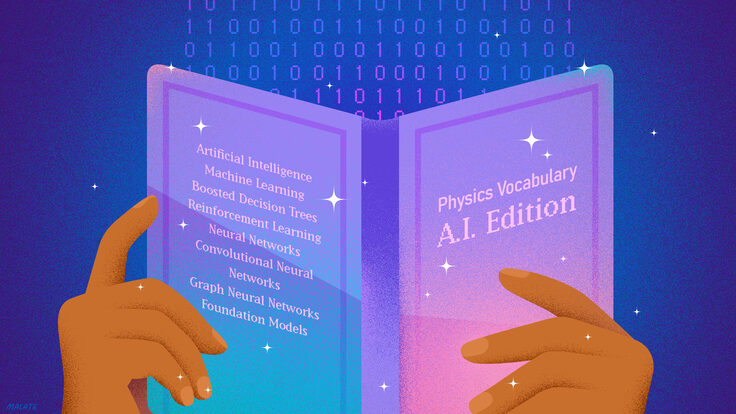If you’re hearing an incessant clicking sound right now, someone around you has probably just discovered Particle Clicker.
Particle Clicker is an addictive computer game a group of students created over the course of a 48-hour hackathon at CERN. Modeled after another compulsive clicking game, Cookie Clicker, it allows the player to work through a full career (or several, really) in particle physics over the course of about a day.
“We thought it would be good to have an addictive game that sneaks in some physics content,” says Igor Babuschkin, the Technical University of Dortmund student who originally proposed the idea.
In the beginning, the player must click on an image that looks suspiciously like the CMS detector at the Large Hadron Collider. Each click creates a particle collision, which produces data. Produce enough data, and you can conduct research, which earns you reputation points, which wins you grant money, which allows you to hire other people to do the clicking for you.
For the rest of the game, data and money accumulate on their own at faster and faster rates the more research you do, the more upgrades you purchase and the more staff you hire. Eventually you’re running a lab with PhD students, postdocs, research fellows, tenured professors, Nobel Prize winners and—most productive of all, according to the game—summer students. The research options follow a rough history of discoveries in particle physics.
The game—created by Babuschkin, Kevin Dungs, Gabor Biro, Tadej Novak and Jiannan Zhang (pictured above)—was the winning entry for CERN’s annual hackathon, called Webfest. Other teams created a mobile app for measuring elevation, a private query database, a crowdsourcing platform for non-governmental organizations responding to humanitarian disasters, and a 3-D game that uses Kinect technology.
Incremental games like this one, Cookie Clicker and another classic, Candy Box, “sound so simple and stupid,” Babuschkin says. “If you tell somebody about it, they say this could never work. The genre is addictive, but you can’t explain why.
“Even while making it, sometimes you caught yourself and said, ‘Oh no, I must stop playing.’ We’re not immune to the game.”
“Nobody’s immune,” Dungs says.
In the week since the game’s release, the Particle Clicker page has had more than 50,000 unique visitors. “It’s completely bananas,” Dungs says.
The game’s code is open-source and available on code-sharing site GitHub. Its creators are still working with volunteers at CERN to make the game more educational—and with volunteers through GitHub and Reddit to make it even more addictive. Click at your own risk.












